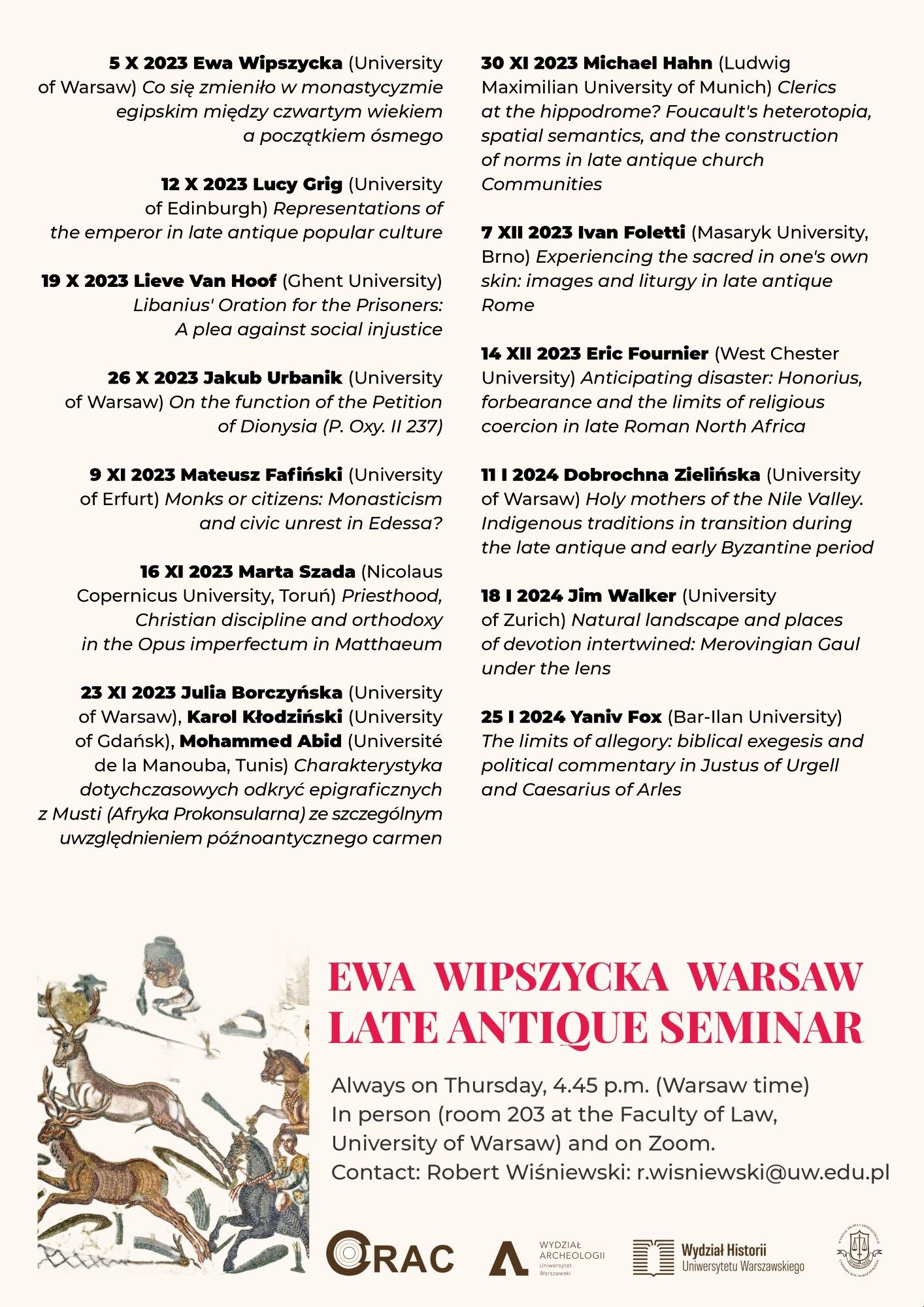Ewa Wipszycka Warsaw Late Antique Seminar: a new programme

The seminars will restart on 5 October. Always on Thursdays, 4.45 p.m., Room 203 at the Faculty of Law and Administration and on Zoom. More information at the seminar’s website Contact: Robert Wiśniewski, r.wisniewski@uw.edu.pl.
5 X Ewa Wipszycka (UW), Co się zmieniło w monastycyzmie egipskim między czwartym wiekiem a początkiem ósmego
12 X Lucy Grig (University of Edinburgh), Representations of the emperor in late antique popular culture
19 X Lieve Van Hoof (Ghent University), Libanius’ Oration for the Prisoners: A plea against social injustice
26 X Jakub Urbanik (UW), On the function of the Petition of Dionysia (P. Oxy. II 237)
9 XI Mateusz Fafiński (University of Erfurt), Monks or citizens: Monasticism and civic unrest in Edessa?
16 XI Marta Szada (Nicolaus Copernicus University, Toruń), Priesthood, Christian discipline and orthodoxy in the Opus imperfectum in Matthaeum
23 XI Julia Borczyńska (UW) / Karol Kłodziński (University of Gdańsk) / Mohammed Abid (Université de la Manouba, Tunis), Charakterystyka dotychczasowych odkryć epigraficznych z Mustis (Afryka Prokonsularna) ze szczególnym uwzględnieniem późnoantycznego carmen
30 XI Michael Hahn (Ludwig Maximilian University of Munich), Clerics at the hippodrome? Foucault’s heterotopia, spatial semantics, and the construction of norms in late antique church Communities
7 XII Ivan Foletti (Masaryk University, Brno), Experiencing the sacred in one’s own skin: images and liturgy in late antique Rome
14 XII Eric Fournier (West Chester University), Anticipating disaster: Honorius, forbearance and the limits of religious coercion in late Roman North Africa
11 I Dobrochna Zielińska (UW), Holy mothers of the Nile Valley. Indigenous traditions in transition during the late antique and early Byzantine period
18 I Jim Walker (University of Zurich): Natural landscape and places of devotion intertwined: Merovingian Gaul under the lens
25 I Yaniv Fox (University of Bar Ilan), The limits of allegory: biblical exegesis and political commentary in Justus of Urgell and Caesarius of Arles

